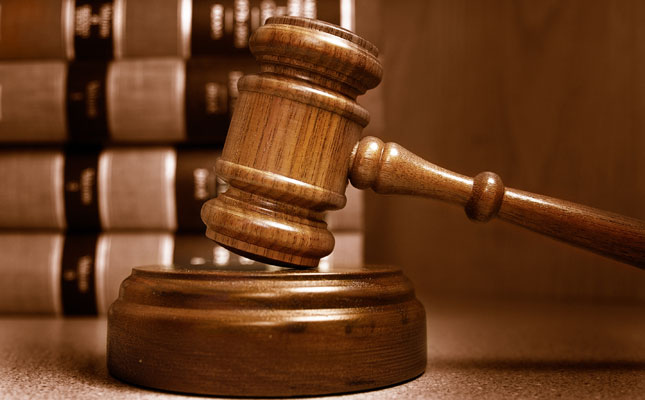Feature/OPED
The Constitutionality of S. 396 (7) ACJA in Light of Provisions of Constitution

By Benita Ayo
Overview
This is a commentary on the paper presented by a learned Senior Advocate of Nigeria, Asiwaju Adegboyega Awomolo where he examines the issue of the vacuum created when a judge who is conducting a criminal trial is elevated to the Court of Appeal, as well as the conflict between the provisions of the constitution and the Administration of Criminal Justice Act (ACJA) when this situation arises.
With the aid of decided cases, he concluded that in this instance, an elevated judicial officer cannot continue to hear the matter because from the point of elevation, he/she lacks the requisite jurisdiction to do so.
According to him, the only resolution to the issue, is for the matter to be commenced ‘de novo’ before another judge having the requisite jurisdiction to hear the matter.
The said Section 396 (7) ACJA provides as follows;
“Notwithstanding the provision of any other law to the contrary, A judge of the High Court who has been elevated to the Court of Appeal shall have dispensation to continue to sit as a high court Judge, only for the purpose of concluding any partly heard criminal matter pending before him at the time of his elevation, and shall conclude the same within a reasonable time, provided that this section shall not prevent him from assuming duty as a Justice of a Court of Appeal.”
Now, Section 1 (1) and 1 (3) of the 1999 Constitution of the Federal Republic of Nigeria provides that;
“1(1) This Constitution is supreme and its provisions shall have binding force on all authorities and persons throughout the Federation Republic of Nigeria.”
For purposes of clarity, its Section 1(3) goes further to state:
“1(3) If any other law is inconsistent with the provision of this Constitution, this Constitution shall prevail, and other law shall to the extent of the inconsistency be void.”
COMMENTS
The issues arising from the conflicts are;
- Jurisdiction of a Justice of the Court of Appeal to continue to sit over a matter at the State High Court
- The doctrine of the supremacy of the constitution (1999 as amended)
- Whether indeed, s. 396 (7) ACJA is inconsistent with the Constitution of the Federal Republic of Nigeria 1999 (As amended)
- JURISDICTION OF A JUSTICE OF THE COURT OF APPEAL TO CONTINUE TO SIT OVER A MATTER AT THE STATE HIGH COURT.
Generally speaking, Jurisdiction means the official power to make legal decisions and judgments. It is also the extent of the power to make legal decisions and judgments.
In FBN LTD v. ABRAHAM (2008) LPELR-1281 (SC), the Court defined jurisdiction thus, ‘What is the meaning of jurisdiction? By judicial authorities, jurisdiction is the authority by which a court has to decide matters that are laid before it for litigation or to take cognizance of matters presented in a formal way for its decision. Let it be said that the limits of this authority are, by practice, imposed by statute or law under which the court is constituted. It may be extended or restricted by similar means. If no restriction is imposed, the jurisdiction is said to be unlimited’.
Furthermore, the Supreme Court per OPUTA, JSC (Pp. 39-40, paras. C-A) has defined jurisdiction in the case of ONYEMA & ORS v. OPUTA & ANOR (1987) LPELR-2736 (SC) that; ‘It is thus necessary for the proper appreciation of the issues in this case to understand the concept and content of “jurisdiction”. Briefly stated jurisdiction as it applies to courts can mean one of two things:-
1. The abstract right of a court to exercise its powers in causes of a certain class, or
2. The right of a court or tribunal to exercise its powers with respect to a particular subject matter.
In one sense, the broader sense, jurisdiction refers to the legal authority, the legal capacity, to adjudicate at all; while in the narrower sense it refers to the power of the court over the particular subject matter in dispute, over the res or property in contest. This latter sense may be referred to, as territorial jurisdiction, or venue, or the area of authority – the geographical area beyond which the court’s power (or legal jurisdiction) is not to be extended.’
CLASSES/TYPES OF JURISDICTION
Jurisdiction may be any of the following;
- Territorial (This is the power or authority to preside over a particular location or venue e.g. the Federal High Court has jurisdiction over the entire territory of Nigeria but the State High Court only have jurisdiction over the state in which it is located)
- Subject matter (The authority to adjudicate over certain causes of action. An example is the jurisdiction of the Federal High Court to preside over Admiralty matters and Issues bordering on the interpretation of the provisions of CAMA)
- Exclusive (This is the right to hear a matter to the exclusion of other courts e.g, the Supreme Court have exclusive jurisdiction to hear matters between the Federation and the State)
- Concurrent (This is where the right to hear a matter is shared between more than one court)
- Original (This is right to hear a matter before any other court. e.g, the Court of Appeal has original jurisdiction to hear matters on whether the President or Vice-President has been validly elected, whether the term of the President has ceased or become vacant See s. 239(1) CFRN 199 (As amended).
- Appellate (This is the authority to hear appeals from lower courts e.g. is the Court of Appeal has the appellate jurisdiction over appeal from the Federal High Court, State High Court, National Industrial Court)
- Substantive (This pertains to matters which the court may specifically adjudicate upon as stipulated by statute)
- Procedural ( This pertains to the compliance of certain rules and principles of the court. this type of jurisdiction can be waived)
It is settled law that jurisdiction is the foundation of any court proceeding. Its importance is so fundamental to the matter that it can be raised at any time even up to the Supreme Court for the first time. A court cannot assume jurisdiction or confer itself with jurisdiction where it lacks same. In the case of CBN v. AUTO IMPORT EXPORT & ANOR (2012) LPELR-7858 (CA) the court held as follows;
“It has been stated, time without number, in a plethora of authorities, that jurisdiction is the threshold and livewire that determines the authority of a Court of law or tribunal to entertain a case before it. This is absolutely so, because it is only when a Court is imbued or conferred with the necessary jurisdiction by the Constitution and law that it will have the judicial power and authority to entertain, hear and adjudicate upon any cause or matter brought before it by parties. Conversely, the absence of such requisite jurisdiction would render any proceedings purportedly conducted by Court an exercise in futility, thus null, void and of no effect whatsoever, no matter how well conducted. ……………….
It is equally a well settled principle, that where a Court lacks jurisdiction to try a matter or case, it fundamentally lacks the vires to hear, and adjudicate upon any issue therein. Thus, due to the complex and fundamental nature thereof, the issue of jurisdiction can be raised at any stage and point in time of the proceedings, at the trial Court, the Court of Appeal, or even the apex Court itself. This trite principle has been settled in a plethora of authorities, including the locus classicus thereof, MADUKOLU VS. NKEMDILM (1952) NSCC 374; (1952) 2 SCNLR 341.”
In the instant situation the question which comes to mind is whether a Judge of the High Court presiding over a criminal trial has the requisite jurisdiction to continue the hearing of the matter after he has been elevated to the Court of Appeal as a Justice.
I will say no because subject to the principles of hierarchy of courts in Nigeria, the Court of Appeal do not share concurrent jurisdiction with the State High Court in respect of any matter.
The Court of Appeal only has Appellate Jurisdiction to hear appeals from the High Court to it whereas the State High Court has jurisdiction to hear civil and criminal actions.
As stated before now, jurisdiction cannot be conferred on a court nor can parties by agreement confer same on the court where the statute creating such courts like in this case, the constitution has not conferred such jurisdiction.
I will like to bring to our minds the provisions of the constitution conferring jurisdiction on the High Court and Court of Appeal accordingly.
Section 239 (1) of the constitution of the Federal Republic of Nigeria 1999 (As amended) conferred original jurisdiction of the Court of Appeal on the following matters and it expressly provides that;
(1) “Subject to the provisions of this Constitution, the Court of Appeal shall, to the exclusion of any other court of law in Nigeria, have original jurisdiction to hear and determine any question as to whether-
(a) any person has been validly elected to the office of President, Vice-President, Governor or Deputy Governor under this Constitution; or
(b) the term of office of the President, Vice-President, Governor or Deputy-Governor has ceased; or
(c) the office of President, Vice-President, Governor or Deputy has become vacant
(2) In the hearing and determination of an election petition under paragraph (a) of subsection (1) of this section, the Court of Appeal shall be duly constituted if it consists of at least three Justices of the Court of Appeal”.
Section 240 provides that;
S. 240 “Subject to the provisions of this constitution, the Court of Appeal shall have Jurisdiction to the exclusion of any other court of law in Nigeria, to hear and determine appeals from the Federal High Court, the High Court of the Federal Capital Territory, Abuja, High Court of a State, Sharia Court of Appeal of the Federal Capital Territory, Abuja, Sharia Court of Appeal of a State, Customary Court of Appeal of the Federal Capital Territory, Customary Court of Appeal of a State and from decisions of a court martial or other tribunals as may be prescribed by an Act of the National Assembly.
Furthermore, the Court of Appeal is properly constituted where there are at least 3 Justices sitting. It does not have the requisite Jurisdiction to hear Criminal or Civil matters except on appeal from the State High Court.
On the other hand, section 270 of the constitution created the High Court of a State and section 272 (1) specifically confers the State High Court with its general jurisdiction where it provides that;
(1) “Subject to the provisions of section 251 and other provisions of this constitution, the High Court of a State shall have jurisdiction to hear and determine any civil proceedings in which the existence or extent of a legal right, power, duty, liability, privilege, interest, obligation or claim is in issue or to hear and determine any criminal proceedings involving or relating to any penalty, forfeiture, punishment or other liability in respect of an offence committed by any person.”
(2) The reference to civil or criminal proceedings in this section includes a reference to the proceedings which originate in the High Court of a State and those which are brought before the High Court to be dealt with by the court in the exercise of its appellate or supervisory jurisdiction.”
As it may be seen from the foregoing provisions, there is no where within the said sections as well as the ones stated above that a Justice of the Court of Appeal may continue with a matter he was previously hearing as a Judge of the State High Court. He simply lacks the jurisdiction to do so as the constitution never conferred it.
- THE DOCTRINE OF THE SUPREMACY OF THE CONSTITUTION (1999 AS AMENDED)
This doctrine postulates that the constitution is the supreme law of the land and all other statutory enactment of the National Assembly where it is inconsistent with the provisions of the constitution shall to the extent of its inconsistency be null and void. (See s. 1 (3) 1999 CFRN (As amended))
This doctrine has been affirmed in the case of FBN PLC v. T.S.A. INDUSTRIES LTD (2010) LPELR-1283 (SC) where the court pronounced on the nature and effect of the supremacy of the constitution and held that;
“By virtue of the provision of Section 1(3) of the 1999 Constitution , the doctrine of supremacy of the Constitution demands that if any law is inconsistent with the provision of the 1999 Constitution, the Constitution shall prevail and the other law shall to the extent of the inconsistency be void. “
Also, in ABACHA & ORS. v. FAWEHINMI (2000) LPELR-14 (SC), the court stated that;
“The Constitution is the supreme law of the land; it is the grundnorm. Its supremacy has never been called to question in ordinary circumstances. For avoidance of doubt, the 1979 Constitution stated categorically in its Chapter 1, Section 1(1) as follows:
“1(1) This Constitution is supreme and its provisions shall have binding force on all authorities and persons throughout the Federation Republic of Nigeria.”
For purposes of clarity, its Section 1(3) goes further to state:
“1(3) If any other law is inconsistent with the provision of this Constitution, this Constitution shall prevail, and other law shall to the extent of the inconsistency be void.”
The nature of this doctrine is that there is no other law which is above the constitution of Nigerian. It is immaterial that such law was enacted by the National Assembly and assented to by the President. Such law, in as much as it is not in tune or in line with what has been provided for by the constitution shall to the extent of such inconsistency be void. Such law cannot stand and should not be regarded or enforced by the courts.
In the instant situation, the provision of the S. 396 (7) ACJA which provides as follows;
“Notwithstanding the provision of any other law to the contrary, A judge of the High Court who has been elevated to the Court of Appeal shall have dispensation to continue to sit as a high court Judge, only for the purpose of concluding any partly heard criminal matter pending before him at the time of his elevation, and shall conclude the same within a reasonable time, provided that this section shall not prevent him from assuming duty as a Justice of a Court of Appeal.” is in my humble view completely at par/variance with the provisions of Section 1 (1)& (3) of the constitution and according to the doctrine of the Supremacy of the constitution is null and void.
Section 1 (3) of the CFRN 1999 (As Amended) provides that;
“If any other law is inconsistent with the provisions of this Constitution, this Constitution shall prevail, and that other law shall to the extent of the inconsistency be void.”
Thus, in the instant case, it is unconstitutional for a Judge of the High Court elevated to a Justice of the Court of Appeal to continue to preside over a criminal matter in the High Court as he is no longer a Judge of the High Court no longer has jurisdiction over matters in such court.
Going further, the constitution has provided for the composition/constitution of a State High Court under S. 273 of the constitution where it provides that;
“For the purpose of exercising any jurisdiction conferred upon it under this constitution or any law, a High Court of a State shall be duly constituted if it consists of at least one Judge of that Court”
Going by the above provision, a Justice of the court of Appeal is not a judge of the State High Court and as such does not have the jurisdiction to preside over any matter whether partly heard by him or not in that court. Any decision of a court lacking the prerequisite jurisdiction constitutes a nullity and no one should submit to such jurisdiction and cannot agree to confer such jurisdiction where the statute creating such court has not created such jurisdiction.
- WHETHER INDEED S. 396 (7) ACJA IS INCONSISTENT WITH THE CONSTITUTION OF THE FEDERAL REPUBLIC OF NIGERIA 1999 (AS AMENDED)
Section 396 (7) of the ACJA provides that;
“Notwithstanding the provision of any other law to the contrary, A judge of the High Court who has been elevated to the Court of Appeal shall have dispensation to continue to sit as a high court Judge, only for the purpose of concluding any partly heard criminal matter pending before him at the time of his elevation, and shall conclude the same within a reasonable time, provided that this section shall not prevent him from assuming duty as a Justice of a Court of Appeal.”
And Section 1 (1) and (3) of the Constitution says;
“1(1) This Constitution is supreme and its provisions shall have binding force on all authorities and persons throughout the Federation Republic of Nigeria.”
For purposes of clarity, its Section 1(3) goes further to state:
“1(3) If any other law is inconsistent with the provision of this Constitution, this Constitution shall prevail, and other law shall to the extent of the inconsistency be void.”
The constitution has conferred different jurisdictions upon the High Court of a State and the Court of Appeal and they are no way similar. While the State High has jurisdiction to hear Civil and Criminal matters, the Court of Appeal has amongst others the jurisdiction to hear appeals from the State High Court, Federal High Court, National industrial Court and so on.
The composition of a State High Court according to the constitution is at least a Judge of the Court and I have stated earlier on that a Justice of the Court of Appeal is not a Judge of the State High Court at least not stated so by the Constitutional provisions creating the Court of Appeal.
Thus, it is not proper for a Justice of the Court of Appeal to continue with a matter which he was handling prior to his elevation as a Justice of the Court of Appeal. Jurisdiction, where it is non-existent, cannot be conferred on oneself nor can parties agree to it.
In the instant case, in light of the provisions of S. 1 (1) & (3) of the constitution, the provisions of S. 396 (7) ACJA is inconsistent with the constitution and is to the extent of its inconsistency null and void.
CONCLUSION
In conclusion, having found that S. 396 (7) ACJA is inconsistent with the constitution, the said section should be expunged completely form the Act. It is my advise that where a Judge of a State High Court has been elevated to a higher office, any criminal matter that is being handled by him should be transferred to another trial Judge with concurrent jurisdiction as the former Judge prior to elevation and be allowed to commence de novo.
I completely agree with the submissions of the learned Senior Advocate that where a Judge has been elevated from the High Court to the Court of Appeal, any partly heard criminal matter by him should be allowed to commence de novo before another Judge with the requisite jurisdiction to hear same.
Benita Ayois a legal practitioner based in Lagos, Nigeria.
Feature/OPED
AU Must Reform into an Institution Africa Needs

By Mike Omuodo
From an online post, a commentator asked an intriguing question: “If the African Union (AU) cannot create a single currency, a unified military, or a common passport, then what exactly is this union about?”.
The comment section went wild, with some commentators saying that AU no longer serves the interest of the African people, but rather the interests of the West and individual nations with greedy interests in Africa’s resources. Some even said jokingly that it should be renamed “Western Union”.
But seriously, how has a country like France managed to maintain an economic leverage over 14 African states through its CFA Franc system, yet the continent is unable to create its own single currency regime? Why does the continent seem to be comfortable with global powers establishing their military bases throughout its territories yet doesn’t seem interested in establishing its own unified military? Why does the idea of an open borders freak out our leaders, driving them to hide under sovereignty?
These questions interrogate AU’s relevance in the ensuing geopolitics. No doubt, the AU is still relevant as it still speaks on behalf of Africa on global platforms as a symbol of the continent’s unity. But the unease surrounding it is justified because symbolism is no longer enough.
In a continent grappling with persistent conflict, economic fragmentation, and democratic reversals, institutions are judged not by their presence, but by their impact.
From the chat, and several other discussion groups on social media, most Africans are unhappy with the performance of the African Union so far. To many, the organization is out of touch with reality and they are now calling for an immediate reset.
To them, AU is a club of cabals, whose main achievements have been safeguarding fellow felons.
One commentator said, “AU’s main job is to congratulate dictators who kill their citizens to retain power through rigged elections.” Another said, “AU is a bunch of atrophied rulers dancing on the graves of their citizens, looting resources from their people to stash in foreign countries.”
These views may sound harsh, but are a good measure of how people perceive the organization across the continent.
Blurring vision
The African Union, which was established in July 2002 to succeed the OAU, was born out of an ambitious vision of uniting the continent toward self-reliance by driving economic Integration, enhancing peace and security, prompting good governance and, representing the continent on the global stage – following the end of colonialism.
Over time, however, the gap between this vision and the reality on the ground has widened. AU appears helpless to address the growing conflicts across the continent – from unrelenting coups to shambolic elections to external aggression.
This chronic weakness has slowly eroded public confidence in the organization and as such, AU is being seen as a forum for speeches rather than solutions – just as one commentator puts it, “AU has turned into a farce talk shop that cannot back or bite.”
Call for a new body
The general feeling on the ground is that AU is stagnant and has nothing much to show for the 60+ years of its existence (from the times of OAU). It’s also viewed as toothless and subservient to the whims of its ‘masters’. Some commentators even called for its dissolution and the formation of a new body that would serve the interests of the continent and its people.
This sounds like a no-confidence vote. To regain favour and remain a force for continental good, AU must undertake critical reforms, enhance accountability, and show political courage as a matter of urgency. Without these, it may endure in form while fading in substance.
The question is not whether Africa needs the AU, but whether the AU is willing and ready to become the institution Africa needs – one that is bold enough to initiate a daring move towards a common market, a single currency, a unified military, and a common passport regime. It is possible!
Mr Omuodo is a pan-African Public Relations and Communications expert based in Nairobi, Kenya. He can be reached on [email protected]
Feature/OPED
Recapitalisation: Silent Layoffs, Infrastructure Deficit Threat to $1trn Economy

By Blaise Udunze
The Central Bank of Nigeria’s recapitalisation exercise, which is scheduled for a March 31, 2026, deadline, has continued to reignite optimism across financial markets and is designed to build stronger, more resilient banks capable of financing a $1 trillion economy. With the ongoing exercise, the industry has been witnessing bank valuations rising, investors are enthusiastic, and balance sheets are swelling. However, beneath these encouraging headline numbers, unbeknownst to many, or perhaps some troubling aspects that the industry players have chosen not to talk about, are the human cost of consolidation and the infrastructure deficit.
Recapitalisation often leads to mergers and acquisitions. Mergers, in turn, almost always lead to job rationalisation. In Nigeria’s case, this process is unfolding against an already fragile labour structure in the banking industry, one where casualisation has become the dominant employment model.
One alarming fact in the Nigerian banking sector is the age-old workforce structure raised by the Association of Senior Staff of Banks, Insurance and Financial Institutions (ASSBIFI), which says that an estimated 60 percent of operational bank workers today are contract staff. This reality raises profound questions about the sustainability of Nigeria’s banking reforms and the credibility of its economic ambitions.
A $1 trillion economy cannot be built on insecure labour, shrinking institutional knowledge, and an overstretched financial workforce.
Recapitalisation and the Hidden Merger Trap
History is instructive. Referencing Nigeria’s 2004-2005 banking consolidation exercise, which reduced the number of banks from 89 to 25, and no doubt, it produced larger institutions, while it also triggered widespread job losses, branch closures, and a wave of outsourcing that permanently altered employment relations in the sector. The current recapitalisation push risks repeating that cycle, only this time within a far more complex economic environment marked by inflation, currency volatility, and rising unemployment.
Mergers promise efficiency, but efficiency often comes at the expense of people. Speaking of this, duplicate roles are eliminated, technology replaces frontline staff, and non-core functions are outsourced. The troubling part of it is that this is already a system reliant on contract labour; mergers could accelerate workforce instability, turning banks into balance-sheet-heavy institutions with shallow human capital depth.
ASSBIFI’s warning is therefore not a labour agitation; it is a macroeconomic red flag.
Casualisation as Structural Weakness, Not a Cost Strategy
It has been postulated by proponents of job casualisation that it is a cost-control mechanism necessary for competitiveness. Contrary to this argument, evidence increasingly shows that it is a false economy. In reaction to this, ASSBIFI President Olusoji Oluwole, who kicked against this structural weakness, asserted that excessive reliance on contract workers undermines job security, suppresses wages, limits access to benefits and blocks career progression while affirming that over time, this erodes morale, loyalty, and productivity.
More troubling are the systemic risks. Casualisation creates operational vulnerabilities, higher fraud exposure, weaker compliance culture, and lower institutional memory.
One of the banking regulators, the Nigeria Deposit Insurance Corporation (NDIC), has not desisted from repeatedly cautioning that excessive outsourcing and short-term staffing models increase security risks within banks. On the negative implications, when employees feel disposable, ethical commitment weakens, and reputational risk grows.
Banking is not a factory floor. It is a trust business. And trust does not thrive in insecurity.
Inside Outsourcing Web of Conflict of Interest
Beyond cost efficiency, Nigeria’s casualisation crisis is also fuelled by a deeper governance problem, conflicts of interest embedded within the outsourcing ecosystem.
In many cases, bank chief executives and executive directors are reported to own, control, or have beneficial interests in outsourcing companies that provide services to their own banks. Invariably, it is the same firms supplying contract staff, cleaners, security personnel, call-centre agents, and even IT support. Structurally, this arrangement allows senior executives to profit directly from the same outsourcing model that strips workers of job security and benefits.
The incentive is clear. Outsourcing enables banks to maintain lean payrolls, bypass strict labour protections associated with permanent employment, and reduce long-term obligations such as pensions and healthcare. But when those designing outsourcing strategies are also financially benefiting from them, the line between efficiency and exploitation disappears.
This model entrenches casualisation not as a temporary adjustment tool, but as a permanent business strategy, one that externalises social costs while internalising private gains.
Exploitation and Its Systemic Consequences
The human impact is severe because the contract staff employed through executive-linked outsourcing firms often face poor working conditions, low wages, limited or no health insurance, and zero job security, which is demotivating. Many perform the same functions as permanent staff but without benefits, voice, or career prospects.
ASSBIFI has warned that prolonged exposure to such insecurity leads to psychological stress, declining morale, and reduced productive life years. Studies on Nigeria’s banking sector confirm that casualisation weakens employee commitment and heightens anxiety, conditions that directly undermine service quality and operational integrity.
From a systemic standpoint, exploitation feeds fragility. High staff turnover erodes institutional memory. Disengaged workers weaken internal controls. Meanwhile, this should be a sector where trust, confidentiality, and compliance are paramount; this is a dangerous trade-off if it must be acknowledged for what it is.
Why Workforce Numbers Tell a Deeper Story
It is in record that as of 2025, Nigeria’s banking sector employs an estimated 90,500 workers, up from roughly 80,000 in 2021. The top five banks today, such as Zenith, Access Holdings, UBA, GTCO, and Stanbic IBTC, account for about 39,900 employees, reflecting moderate growth driven by digital expansion and regional operations.
At face value, truly, these figures suggest resilience. But when viewed alongside the 60 percent casualisation rate, they paint a different picture, revealing that employment growth is without employment quality. A workforce dominated by contract staff lacks the stability required to support long-term credit expansion, infrastructure financing, and industrial transformation.
This matters because banks are expected to be the engine room of Nigeria’s $1 trillion economy, funding roads, power plants, refineries, manufacturing hubs, and digital infrastructure. Weak labour foundations will eventually translate into weak execution capacity.
Nigeria’s Infrastructure Financing Contradiction
Nigeria’s infrastructure deficit is estimated in the hundreds of billions of dollars. Power, transport, housing, and broadband require long-term financing structures, sophisticated risk management, and deep sectoral expertise. Yet recapitalisation-induced mergers often lead to talent loss in precisely these areas.
As banks consolidate, specialist teams are downsized, project finance units are merged, and experienced professionals exit the system, either voluntarily or through redundancy. Casual staff, by design, are rarely trained for complex, long-term infrastructure deals. The result is a contradiction, revealing that larger banks have bigger capital bases but thinner technical capacity.
Without deliberate workforce protection and skills development, recapitalisation may produce banks that are too big to fail, but too hollow to build.
South Africa Offers a Useful Contrast
South Africa offers a revealing counterpoint. As of 2025, the country’s “big five” banks, such as Standard Bank, FNB, ABSA, Nedbank, and Capitec, employ approximately 136,600 workers within South Africa and about 184,000 globally. This is significantly higher than Nigeria’s banking workforce, despite South Africa having a smaller population.
More importantly, South African banks maintain a far higher proportion of permanent staff. While outsourcing exists, core banking operations remain firmly institutionalized compared to the Nigerian banking system. For this reason, South Africa’s career progression pathways are clearer, labour regulations are more robustly enforced, and unions play a more structured role in workforce negotiations.
The result is evident in outcomes. South Africa’s top six banks are collectively valued at over $70 billion, with Standard Bank alone boasting a market capitalisation of approximately $30 billion and total assets nearing $192 billion. Nigeria’s top 10 banks, by contrast, held combined assets of about $142 billion as of early 2025, even with a much larger population and economy, and its 13 listed banks reached a combined market capitalisation of about N17 trillion ($11.76 billion at an exchange rate of N1,445) in 2026.
Though this gap is not just about capital. It is about institutional depth, workforce stability, and governance maturity.
Bigger Valuations, But a Weaker Foundations?
Nigeria’s 13 listed banks reached a combined market capitalisation of about N17 trillion in 2026. It is no surprise, as it is buoyed by investor anticipation of recapitalisation and higher capital thresholds. Yet market value does not automatically translate into economic impact. Without parallel investment in people, systems, and long-term skills, valuation gains remain fragile.
South Africa’s experience shows that strong banks are built not only on capital adequacy, but on human capital adequacy. Skilled, secure workers are better risk managers, better innovators, and better custodians of public trust.
Labour Law and its Regulatory Blind Spots
ASSBIFI’s call for a review of Nigeria’s Labour Act is timely, and this is because the current framework lags modern employment realities, particularly in sectors like banking, where technology and outsourcing have blurred traditional employment lines. Regulatory silence has effectively legitimised casualisation as a default model rather than an exception.
The Central Bank of Nigeria cannot afford to treat workforce issues as outside its mandate. Prudential stability is inseparable from labour stability. Regulators must begin to view excessive casualisation as a risk factor, just like liquidity mismatches or weak capital quality.
Recapitalisation Without Inclusion Is Incomplete
If recapitalisation is to succeed, it must be inclusive; therefore, the industry must witness the enforcement of career path frameworks for contract staff, limiting the proportion of outsourced core banking roles, and aligning capital reforms with employment protection. It also means recognising that labour insecurity ultimately feeds systemic fragility.
South Africa’s banking sector did not avoid consolidation, but it managed it alongside workforce safeguards and institutional continuity. Nigeria must do the same or risk building banks that look strong on paper but crack under economic pressure.
True Measure of Reform
Judging by the past reform in 2004-2005, it has shown that Nigeria’s banking recapitalisation will be judged not by the size of balance sheets, but by the resilience of the institutions it produces. As part of the recapitalisation target for more resilient banks capable of financing a $1 trillion economy, it demands banks that can think long-term, absorb shocks, finance infrastructure, and uphold trust. None of these goals is compatible with a workforce trapped in perpetual insecurity.
Casualisation is no longer a labour issue; it is a national economic risk. If mergers proceed without deliberate workforce stabilisation, Nigeria may end up with fewer banks, fewer jobs, weaker institutions, and a slower path to prosperity.
The lesson from South Africa is clear, as it shows that strong banks are built by strong people. Until Nigeria’s banking reforms fully embrace that truth and the missing pieces are addressed, recapitalisation will remain an unfinished project. and the $1 trillion economy, an elusive promise.
Blaise, a journalist and PR professional, writes from Lagos, can be reached via: [email protected]
Feature/OPED
In Nigeria… One Day Monkey Go Go Market

By Prince Charles Dickson PhD
In Nigeria, the road has become a stage where power performs its most absurd theatre. The siren—once a tool of emergency—now plays the soundtrack of ego. The convoys, longer than a bride’s procession, louder than a market quarrel, move through our streets like small invading armies. And every time that blaring, violent sound slices through the air, a simple truth echoes behind it: one day monkey go go market… and e no go return.
Because power, especially Nigerian power, has a short memory. And even shorter patience.
These leaders who move as though the sun itself must pause when they pass were once ordinary Nigerians. They once queued at bus stops, once waited under the rain for taxis, once navigated potholed streets with the same caution as every other citizen trying not to die by negligence. But somewhere between election and inauguration, ambition and arrogance, something snapped. Their feet left the ground. Their humanity blurred. And their ears, now accustomed to sirens; forgot how silence feels.
The bizarre culture of convoys in Nigeria has metastasized into something theatrical, violent, and deeply offensive. What began as protocol has become performance. Sirens scream not just to clear the road, but to announce hierarchy. Vehicles speed not just to meet schedules but to demonstrate superiority. And the citizens, the people in whose name this power is supposedly held, scatter like startled chickens. Or worse, end up dead under tires that never brake.
The irony is painful. The same leaders who demand absolute obedience from citizens once walked among those same citizens unnoticed. Once upon a time they lived without outriders, without black-tinted SUVs, without pickup vans carrying heavily armed security men who point guns at commuters as though Lagos traffic is a battlefield. They were once people. Now they behave like a species apart.
But the road remembers. The people remember. And power always forgets that it is a tenant, never a landlord.
Escorts in Nigeria don’t just move with urgency; they move with intimidation. They shove, push, threaten, and roar through roads where ordinary Nigerians are merely trying to survive the day. The siren becomes a weapon, the convoy a declaration of dominance. The message is clear: “Your life must move aside. My importance is passing.”
In what country should this be normal?
Even emergency vehicles; ambulances carrying dying patients, fire trucks racing to burning buildings, sometimes cannot pass because a government official’s convoy has occupied the road with the entitlement of royalty.
This isn’t governance; it’s theater of the absurd.
And the casualties are not metaphorical. Nigerians have died—pregnant women hit by convoys, okada riders knocked off the road, children flung away like debris. Drivers in these convoys behave like warhorses let loose, sworn not to slow down regardless of what or who is ahead.
But who will hold them accountable? Who dares question power that sees questions as disrespect and disrespect as rebellion?
The institutions meant to regulate these excesses are the same institutions that created them. Protocol offices treat speed like divinity. Security details mistake aggression for duty. Schedules are treated as holy commandments. Every meeting becomes urgent. Every movement becomes life-or-death. Every road must clear.
But the truth sits quietly behind all this noise: no meeting is that important, no leader is that indispensable, and no road should require blood to make way.
Somewhere, a child grows up believing public office means public intimidation. A young man sees the behavior of convoys and dreams not of service but of dominance. A young woman imagines that leadership means never waiting in traffic like the rest of society. And so, the cycle of arrogance reproduces itself. A country becomes a laboratory where entitlement multiplies.
In Nigeria, the convoy culture reveals a deeper sickness: a leadership class that has disconnected from the lived realities of the people they claim to govern.
When did proximity to power become justification for violence?
When did schedules become more sacred than lives?
When did we normalize leaders who move like emperors, not elected representatives?
But more importantly: how do these leaders forget so quickly where they came from?
Many of them grew up in the same chaos their convoys now worsen. They once asked why leaders were insensitive. Now they have inherited the same insensitivity and advanced it.
The convoy is more than metal and noise. It is a metaphor. It illustrates how Nigerian governance often operates: pushing the people aside, demanding unquestioned obedience, prioritizing position over responsibility.
And yet, the proverb whispers:
One day monkey go go market… e no go return.
Not because we wish harm on anyone, but because history has its own logic. Power that forgets compassion eventually forgets itself. Leadership that drives recklessly, morally, politically, and literally—will one day crash against the boundaries of public patience.
This metaphor is a quiet mirror for every leader who believes their current status is divine permanence. One day, the sirens will go silent. The tinted windows will roll down. The outriders will be reassigned. The road will no longer clear itself. Reality will return like harmattan dust.
And then the question will confront them plainly:
When your power fades, what remains of your humanity?
The tragedy of Nigeria’s convoy culture is that it makes leadership look like tyranny and renders citizens powerless in their own country. It fosters a climate where ordinary people live in perpetual startle. It deepens distrust. It fuels resentment. It reinforces the perception that leadership is designed to intimidate rather than serve.
And what does it say about us as a nation that we accept this?
We accept the absurdity because we assume it cannot be overturned. We accept arrogance because we assume it is the price of power. We step aside because we assume there is no alternative.
But nations are not built on assumptions. They are built on accountability.
The temporary nature of political power should humble leaders, not inflate them. Four or eight years or whatever time they spend clinging to office cannot compare to the lifetime they will spend as private citizens once the convoys disappear.
When the noise stops, will they walk among us head high or with their face hidden?
When the sirens lose their voice, will they find their own?
What if true leadership was measured not by how loudly you move through society but by how gently you walk among the people?
Imagine a Nigeria where power travels quietly. Where convoys move with the dignity of service, not the violence of entitlement. Where leaders move with humility, not hysteria. Where the streets do not tremble at the approach of authority. Where citizens do not shrink to the roadside, waiting to survive the thunder of tinted SUVs.
It is possible. It is necessary. It begins with leaders remembering that every journey through Nigeria’s roads is a reminder of their accountability, not their dominion.
Because one day, and it will come—monkey go go market.
The convoy will stop.
The siren will fade.
The power will dissolve into yesterday.
And the road will ask the only question that matters:
While you passed through, did you honor the people… or terrorize them?
History will remember the answer.
And so will we—May Nigeria win!
-

 Feature/OPED6 years ago
Feature/OPED6 years agoDavos was Different this year
-
Travel/Tourism9 years ago
Lagos Seals Western Lodge Hotel In Ikorodu
-

 Showbiz3 years ago
Showbiz3 years agoEstranged Lover Releases Videos of Empress Njamah Bathing
-

 Banking8 years ago
Banking8 years agoSort Codes of GTBank Branches in Nigeria
-

 Economy3 years ago
Economy3 years agoSubsidy Removal: CNG at N130 Per Litre Cheaper Than Petrol—IPMAN
-

 Banking3 years ago
Banking3 years agoSort Codes of UBA Branches in Nigeria
-

 Banking3 years ago
Banking3 years agoFirst Bank Announces Planned Downtime
-

 Sports3 years ago
Sports3 years agoHighest Paid Nigerian Footballer – How Much Do Nigerian Footballers Earn












